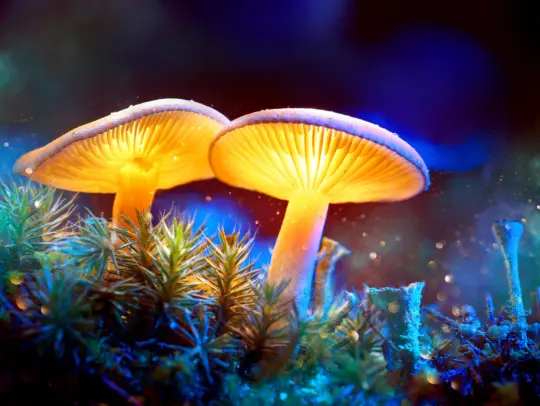
Exploring Psilocybin - From Brain Health to Stigma Shift
Exploring Psilocybin: From Brain Health to Stigma Shift
Psilocybin mushroom research is rapidly evolving, revealing its therapeutic potential in mental health treatment, neuroscience, and trauma recovery, including PTSD and addiction support.
From Stigma to Science
Long criminalized since the Nixon era, psilocybin research was halted until the late '90s. Now, federal agencies like the FDA are reconsidering its value in therapeutic settings, sparking renewed scientific and medical interest.
Sexuality, Sensation & Shrooms
Psychedelic mushrooms have also entered the conversation around sexual health. In certain intimate contexts, psilocybin may deepen connection, self-awareness, and emotional intimacy between partners, facilitating profound shared experiences.
The Chemistry Behind the Magic
Psilocybin-containing mushrooms include active compounds like psilocybin, psilocin, baeocystin, and norbaeocystin. These compounds are chemically similar to DMT, a naturally occurring neurochemical associated with dreaming, and they interact with serotonin receptors to influence perception, mood, and brain connectivity.
Cultural Roots and Historical Use
Historically, psilocybin has played a sacred role in Mesoamerican cultures, especially in modern-day Mexico, where shamans used wild-picked mushrooms for healing, spiritual ceremonies, and divination. These traditional uses paved the way for modern ethnopharmacology.
Microdosing and Neuroplasticity
Microdosing—taking sub-perceptual doses of psilocybin (typically 50-100mg)—has become popular for enhancing cognition, mood, and focus. This is especially promising for those managing conditions like ADD, ADHD, and PTSD. Research suggests microdosing may stimulate neuroplasticity, promote brain cell regeneration, and enhance creativity and learning.
The Research Renaissance
After decades of being stalled, psilocybin research has surged forward. Clinical trials now examine its potential to treat depression, PTSD, anxiety, and traumatic brain injury. Early results are promising, with studies showing significant improvements in mental and emotional well-being.
Legal Grey Zones
While some U.S. jurisdictions have decriminalized psilocybin, it remains illegal in most states. Arizona, for example, still considers psilocybin a high-risk substance. Though enforcement is inconsistent, users are advised to act within the bounds of the law and understand their constitutional rights carefully.
Challenges with Dosing and Safety
One major challenge in the psilocybin community is dose standardization. Most magic mushrooms are unregulated, and potency varies by strain and grow. Without clear chain-of-custody or growing standards, it's critical that users start with low doses and titrate slowly under guidance when possible.
From Closet Grows to Lab-Grade Extracts
As the industry evolves, we're seeing a shift from unregulated mushroom use to pharmaceutical-grade psilocybin extracts. Laboratories in legal jurisdictions are working toward standardized chemical formulations for research and therapeutic applications.
Reducing Harm, Enhancing Awareness
Just as with cannabis, the societal perception of psilocybin is shifting. Still, with this evolution comes the need for harm reduction education. Knowing your source, understanding dosage, and integrating experiences properly is essential for safe use.
Breaking the Stigma
Mushrooms have long been misunderstood—viewed with fear, mistrust, and even ridicule. But cultures worldwide, especially in Europe and Asia, have used mushrooms for both food and medicine for centuries. As the quote goes, “Let food be thy medicine.”
The Road Ahead
As public attitudes grow more “fungal-positive,” psilocybin continues to prove its value in both spiritual and scientific realms. Whether for emotional healing, creativity, or potential sexual enhancement, the promise of psilocybin is no longer confined to hippie lore—it's backed by growing research and public interest.
Want to learn more? Visit eDrugstore.com to explore wellness-focused supplements and stay tuned as the world of mushroom-based therapy continues to unfold.

